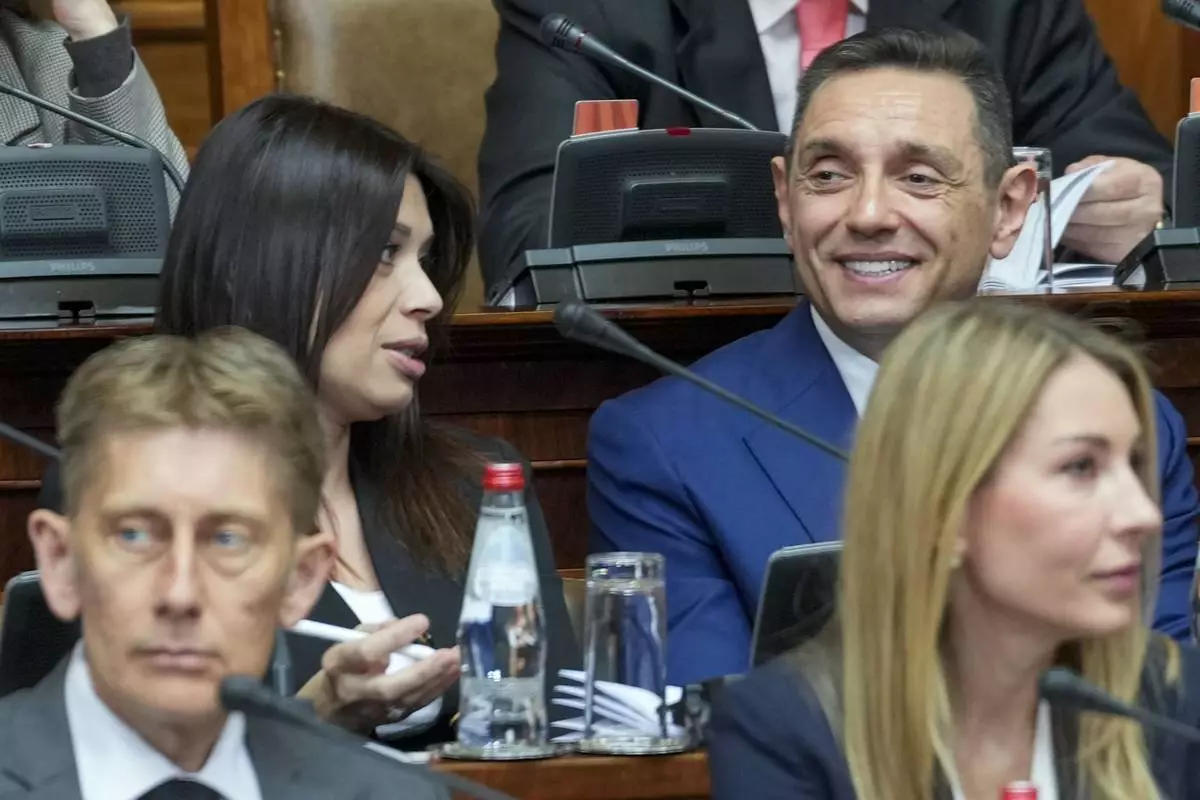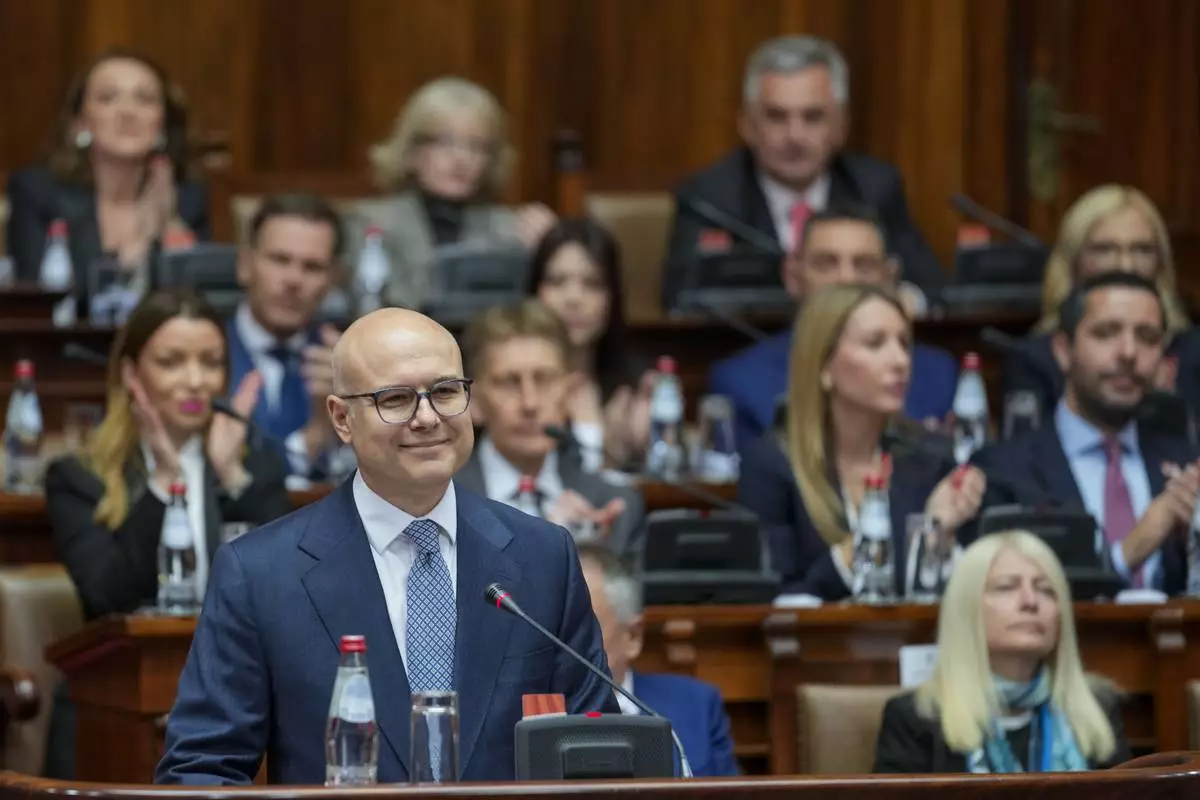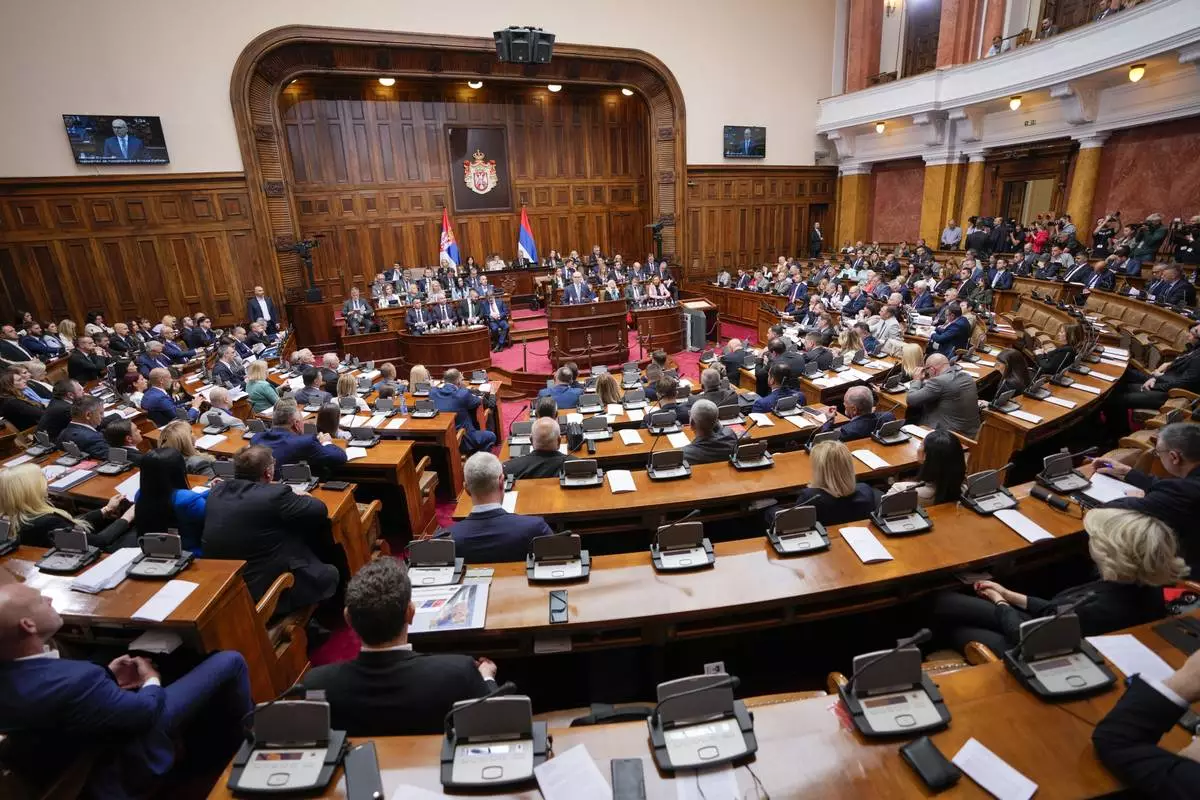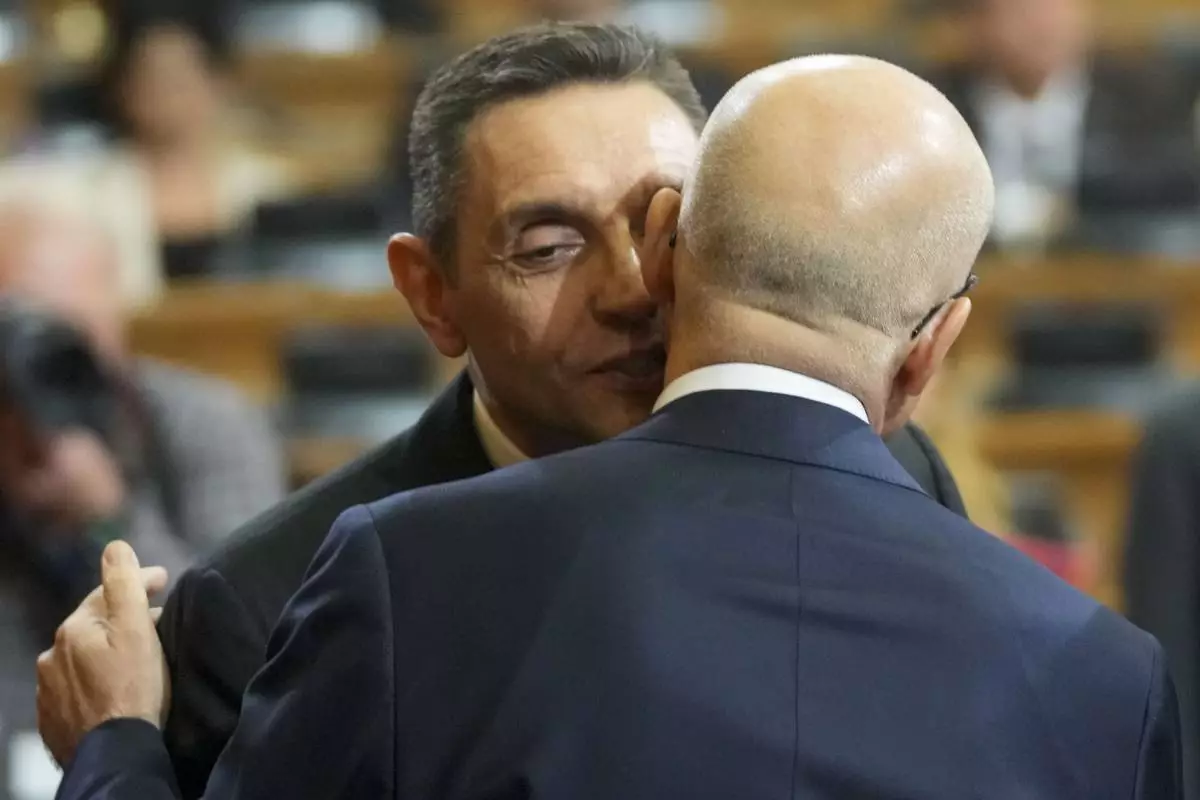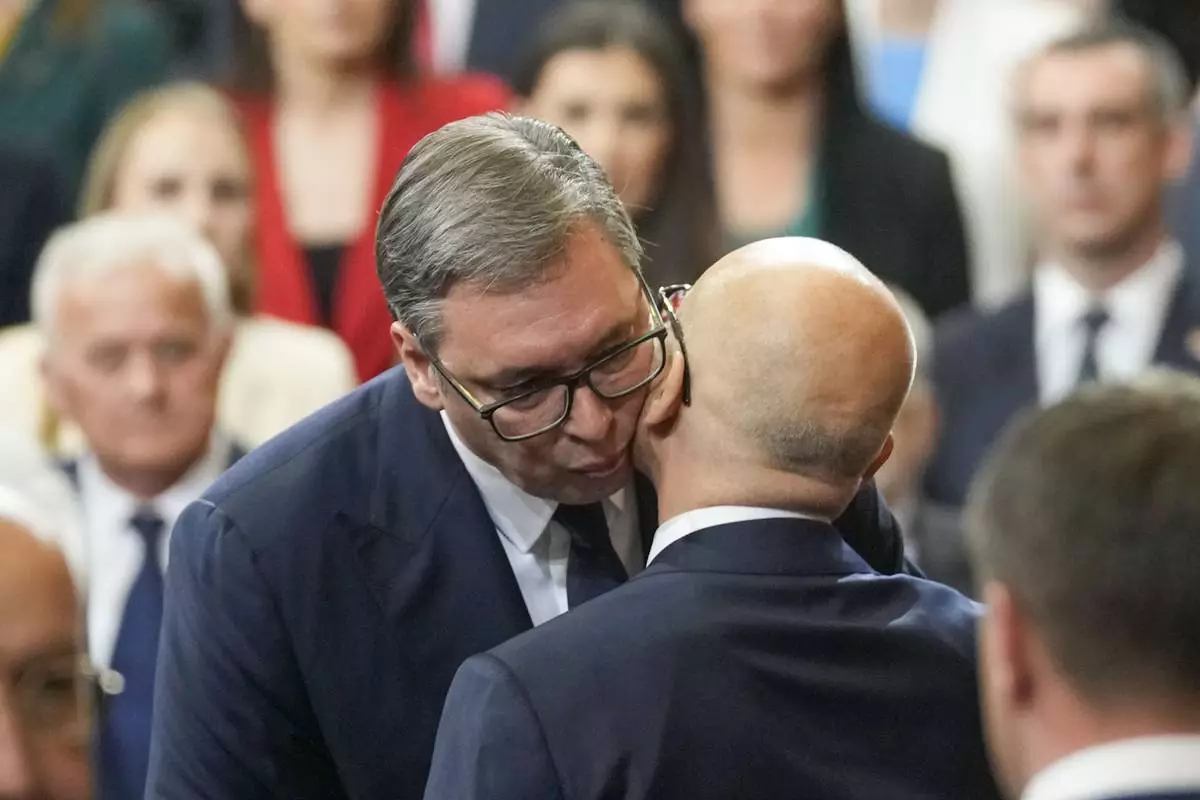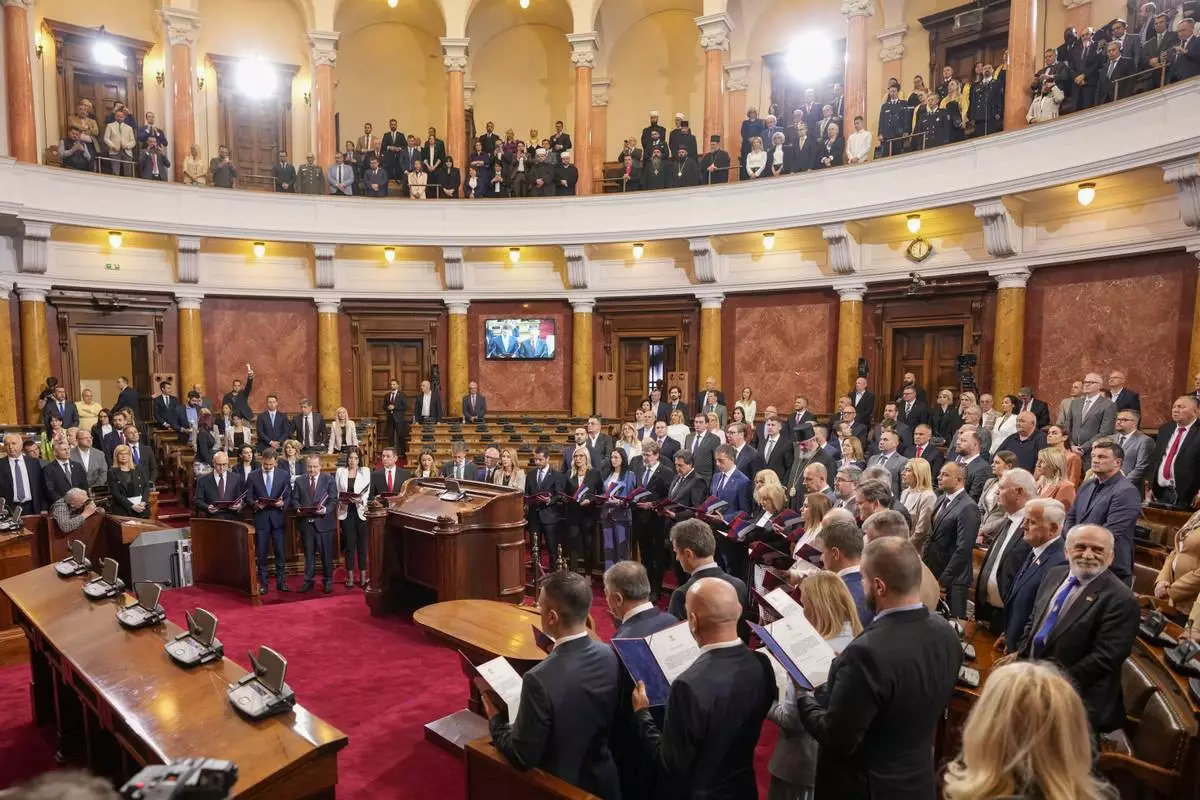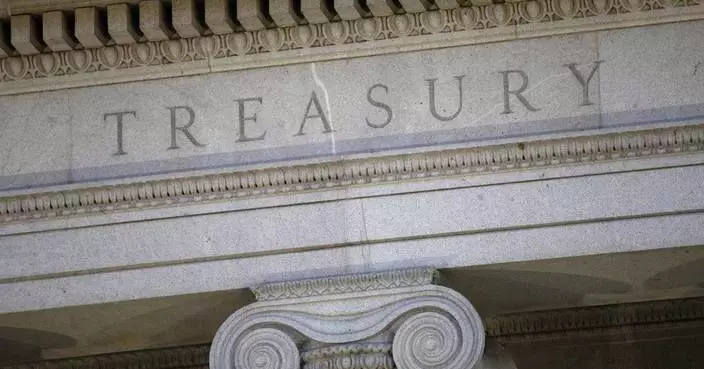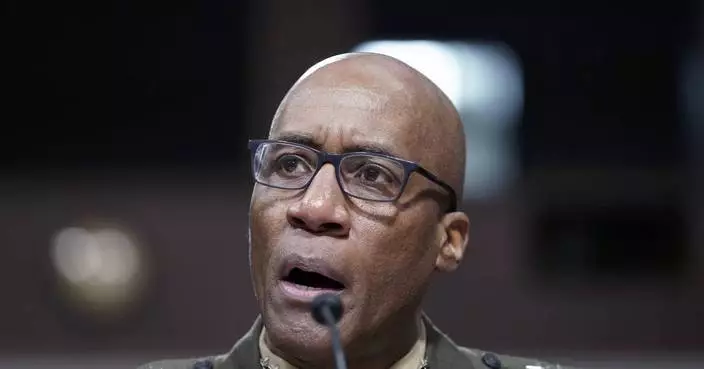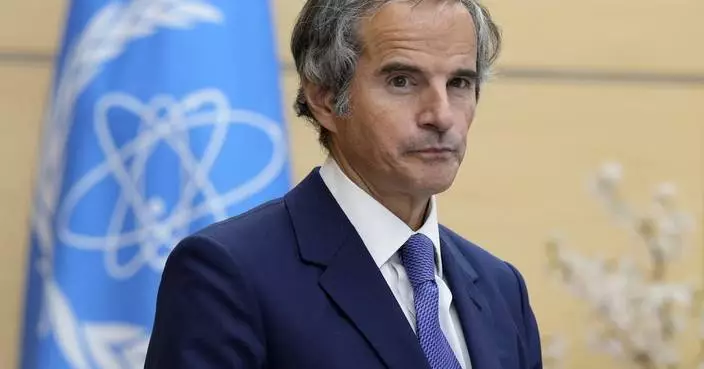Creating fire buffers between housing and dry brush, burying spark-prone power lines and lighting more controlled burns to keep vegetation in check could give people a better chance of surviving wildfires, according to experts searching for ways to reduce growing death tolls from increasingly severe blazes in California and across the U.S. West.
Western wildfires have grown ever more lethal, a grim reality that's been driven by more housing developments sprawling into the most fire-prone grasslands and brushy canyons, experts say. Many of the ranchers and farmers who once managed those landscapes are gone, leaving neglected terrain that has grown thick with vegetation that can explode into flames when sparked.
That's left communities ripe for tragedy as whipping winds and recurring drought that's characteristic of climate change stoke wildfires like the ones still raging in Northern and Southern California that have killed at least 51 people in recent days.
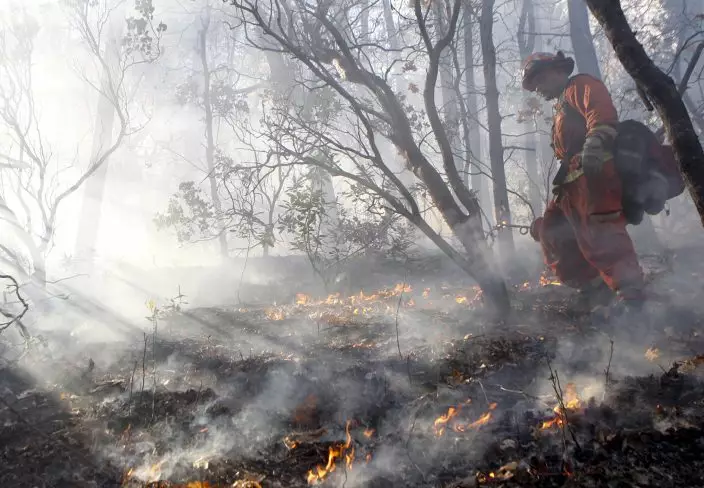
FILE - In this Nov. 23, 2015, file photo, an inmate from the Trinity River Conservation Camp watches over a prescribed burn on Mule Mountain in the Swasey Recreation Area near Redding, Calif. Creating fire buffers between housing and dry grasslands and brush and burying spark-prone power lines underground would give people a better chance of surviving wildfires, experts say. So would controlled burns, a proven, historic practice that has been neglected in recent decades. (Greg BarnetteThe Record Searchlight via AP, File)
Hundreds of thousands of people were told to leave their homes ahead of the blazes to get out of harm's way. Yet some experts say there's been an over-reliance on evacuation and too little attention paid to making communities safe, as well as not enough money for controlled burns and other preventive measures.
Search crews found many victims inside their vehicles, or just next to them, overcome by flames, heat and smoke as they tried to flee. Survivors of the blaze that nearly obliterated the Northern California town of Paradise and nearby communities spoke of having just minutes to escape and narrow roads made impassable by flames and traffic jams.
"There are ... so many ways that can go wrong, in the warning, the modes of getting the message out, the confusion ... the traffic jams," said Max Moritz, a wildfire specialist with the University of California Cooperative Extension program.
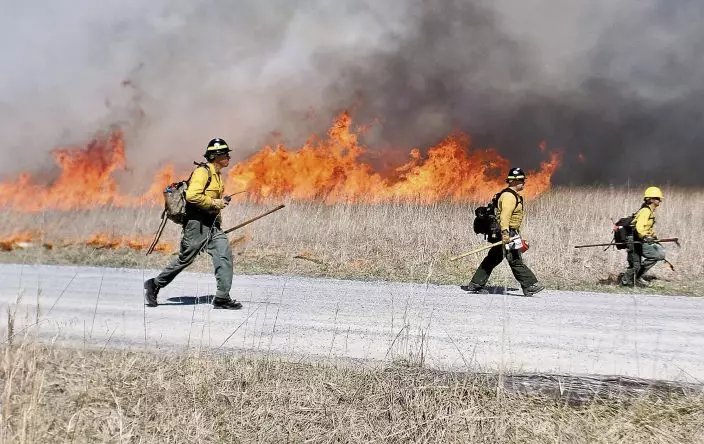
FILE - In this March 8, 2018 file photo, National Park firefighters start to run to keep ahead of a controlled burn near the Abrahms Fall trail head in Cades Cove in the Great Smoky Mountains National Park, Tenn. Creating fire buffers between housing and dry grasslands and brush and burying spark-prone power lines underground would give people a better chance of surviving wildfires, experts say. So would controlled burns, a proven, historic practice that has been neglected in recent decades. (Tom SherlinThe Daily Times via AP, File)
As deadly urban wildfires become more common, officials should also consider establishing "local retreat zones, local safety zones" in communities where residents can ride out the deadly firestorms if escape seems impossible, Moritz said.
That could be a community center, built or retrofitted to better withstand wildfires, which can exceed 2,000 degrees Fahrenheit, leaving little trace of ordinary homes.
Such fire protection measures in buildings can include sprinklers, fire- and heat-resistant walls and roofs, and barriers that keep sparks out of chimneys and other openings, according to the International Code Council, a nonprofit that helps develop building codes used widely in the United States.
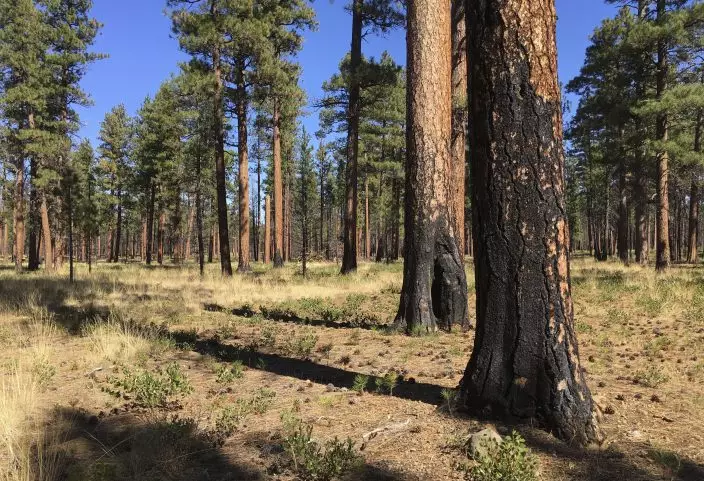
FILE - This Sept. 27, 2017, file photo, shows charred trunks of Ponderosa pines near Sisters, Ore., months after a prescribed burn removed vegetation, smaller trees and other fuel ladders last spring. Creating fire buffers between housing and dry grasslands and brush and burying spark-prone power lines underground would give people a better chance of surviving wildfires, experts say. So would controlled burns, a proven, historic practice that has been neglected in recent decades. (AP PhotoAndrew Selsky, File)
Creating more buffers — whether parks, golf courses or irrigated agriculture, like the vineyards that helped keep 2017 wildfires in California's wine country from spreading into even more towns — around new and old housing developments would help stave off wildfires threatening to overrun cities and towns.
So would burying electric power lines, which can spark and fail in the high winds that drive many of California's fiercest fires, said Jon Keeley, a research scientist with the U.S. Geological Survey in California.
Sparks from electrical utility equipment are suspects in the Northern California wildfire that consumed Paradise, destroying some 7,700 homes, and other deadly blazes in the state.
A proven method to prevent wildfires from getting out of control is the use of controlled burns. By intentionally lighting fires, property owners or land managers can remove dead and low-lying trees and brush — material that otherwise accumulates and can accelerate the growth of fires.
In the mid-20th century, California ranchers burned hundreds of thousands of acres annually to manage their lands, said Lenya Quinn-Davidson, director of the Northern California Prescribed Fire Council.
That was phased out in the 1980s after California's fire management agency stepped in to take over the burns, and by the last decade, the amount of acreage being treated had dropped to less than 10,000 acres annually, Quinn-Davidson said.
Former agricultural land that rings many towns in the state became overgrown, even as housing developments pushed deeper into those rural areas. That was the situation in the Northern California town of Redding leading up to a fire that began in July and destroyed more than 1,000 homes. It was blamed for eight deaths.
"You get these growing cities pushing out — housing developments going right up into brush and wooded areas. One ignition on a bad day, and all that is threatened," Quinn-Davidson said. "These fires are tragic, and they're telling us this is urgent. We can't sit on our hands."
The latest California fires have fueled debate over the reasons for ever-more deadly wildfires, with President Donald Trump claiming in a tweet Saturday that "gross mismanagement of the forests" was the sole reason the state's fires had become so "massive, deadly and costly." He also threatened to withhold federal payments to the state.
However, most of California's deadly fires of recent years have been in grasslands and brushy chaparral, Keeley said.
"Most of the fires we've been seeing in the last couple years that are the most destructive are not in the forest. Thinning isn't going to change anything," he said.
Trump's assertion also ignored the huge federal land holdings in the state and brought a quick backlash, with the president of the California firefighters union describing it as a shameful attack on thousands of firefighters on the front lines.
To ease tensions, the White House sent Interior Secretary Ryan Zinke to tour fire-damaged areas and offer assistance to California Gov. Jerry Brown.
In an interview prior to the two-day visit, which began Wednesday, Zinke struck a conciliatory tone and said federal officials share blame for not managing public forest and rangelands aggressively enough.
"We need to work in unison to make sure we thin the forest, especially fire breaks, and make sure we have prescribed burns," Zinke told The Associated Press. "There's been a lack of management on Interior lands, on U.S. Forest Service lands and certainly with state lands."
But it's California, not the Trump administration that is putting more money behind such efforts.
In response to the deadly blazes of recent years, California lawmakers in September approved a measure that would provide $1 billion over five years for fire protection, including more controlled burns and projects to thin forests and brush land.
By contrast, federal spending on hazardous fuels reduction has been flat in recent years, hovering just under $600 million, even as direct firefighting costs jumped to a record $2.9 billion last year.
For 2019, the Forest Service has proposed a $3 million bump for its wildfire fuels program. At Interior, Zinke proposed a $29 million cut in fuel management spending.
Follow Matthew Brown on Twitter at https://twitter.com/MatthewBrownAP



